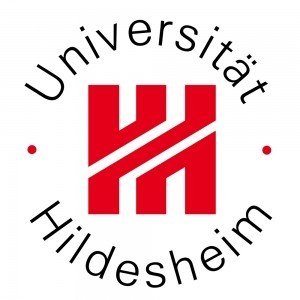Photos of university / #americanpublicu
The Bachelor of Science in Database Application Development at American Public University provides students with comprehensive knowledge and practical skills in designing, implementing, and managing database systems. This program is designed to prepare students for a variety of roles in the information technology industry, focusing on the development of efficient, secure, and scalable database solutions. Throughout the coursework, students explore foundational concepts such as database structures, data modeling, and query languages, alongside advanced topics including database administration, security, and optimization techniques. The curriculum emphasizes hands-on experience, enabling students to develop real-world applications using industry-standard tools and programming languages. Students will also learn about emerging trends in database technologies, including cloud computing, big data, and data analytics, equipping them to adapt to the rapidly evolving tech landscape. The program aims to foster critical thinking, problem-solving abilities, and technical proficiency, ensuring graduates are capable of designing innovative data solutions for diverse industries such as finance, healthcare, retail, and government. With a flexible online learning environment, students can balance their studies with professional and personal commitments, gaining the knowledge necessary for successful careers as database developers, data analysts, database administrators, or IT consultants. Upon completion, graduates will have built a solid foundation in database application development and be prepared to contribute effectively in a competitive job market. American Public University’s program emphasizes industry-relevant skills, ethical considerations in technology, and professional development to support students' career growth in the dynamic field of database technology.
The Bachelor of Science in Database Application Development at American Public University provides students with comprehensive knowledge and practical skills necessary to design, implement, and manage modern database systems. The program emphasizes the foundational concepts of database design, including data modeling, normalization, and the development of efficient database architectures. Students will explore various database management systems, such as SQL, NoSQL, and cloud-based solutions, gaining hands-on experience through real-world projects and coursework.
Curriculum topics cover database programming languages, query optimization, data security, and the integration of databases with other software applications. Through coursework in programming languages like SQL and scripting, students learn how to develop, maintain, and optimize database applications for a variety of industry needs. The program also prepares students to understand the ethical and legal considerations related to data management, ensuring they are equipped to handle privacy, security, and compliance challenges.
American Public University’s flexible online format allows students to learn at their own pace while balancing personal and professional commitments. The program includes opportunities for practical assignments, case studies, and collaborative projects that simulate real-world scenarios faced by database developers and administrators. Graduates of this program will be prepared for careers as database developers, data analysts, database administrators, and information systems specialists, capable of contributing to the efficient storage, retrieval, and management of data across various industries.
Throughout their studies, students will develop critical thinking skills, technical proficiency, and a strong understanding of best practices in database application development. The program aims to produce graduates who are capable of designing innovative database solutions, troubleshooting system issues, and contributing to the digital transformation efforts within organizations. With the growing reliance on data-driven decision-making in today’s technology landscape, this program offers a vital pathway to a rewarding career in information technology and data management.
Program Requirements for the Bachelor of Science in Database Application Development at American Public University:
Applicants must hold a high school diploma or equivalent from an accredited institution. Submission of official high school transcripts is required to verify academic achievement. Prospective students are encouraged to demonstrate proficiency in mathematics and computer science fundamentals. For international applicants, TOEFL or IELTS scores are necessary to establish English language proficiency unless they have completed previous education in English.
Transfer students with prior college coursework may be eligible to transfer up to 75% of degree credits, subject to evaluation and approval by the university’s admissions office. Prospective students must complete the university’s online application form and pay the applicable application fee. Additionally, a personal statement or essay outlining career objectives and motivation for pursuing the program is recommended but not mandatory.
Once admitted, students are required to complete the foundational core courses in programming, database management, and systems analysis before progressing to specialized courses in application development, SQL, and database security. The curriculum emphasizes practical skills, including designing, developing, testing, and deploying database-driven applications. Students are expected to participate in hands-on labs and projects to develop real-world competencies.
The program requires the completion of a capstone project that demonstrates advanced application development skills in a real-world scenario. Students must also complete a minimum of 120 semester credit hours, including general education requirements such as communication, critical thinking, and ethics. Maintenance of good academic standing, defined by a minimum GPA of 2.0, is necessary to progress through the program.
Internship or cooperative education opportunities are available and highly encouraged to augment classroom learning with industry experience. To graduate, students must successfully complete all required coursework, adhere to university policies, and pay all outstanding tuition and fees. Continuous advising and academic support are provided to guide students through their educational journey and help them meet all program requirements efficiently.
The financing of the Database Application Development program at American Public University is designed to accommodate a diverse student population, including both domestic and international students. The university offers a range of tuition options, which are subject to change annually, to ensure affordability and accessibility for students pursuing this degree. The tuition fees for undergraduate programs generally vary based on residency status, with in-state students benefiting from lower rates compared to out-of-state students. Additionally, the university provides a per-credit-hour or flat-rate tuition structure, allowing students to choose the most cost-effective payment plan according to their course load.
American Public University (APU) administers several financial aid options to help students finance their education. Federal financial aid programs, such as the Federal Pell Grant, Federal Work-Study, and Federal Direct Loans, are available for eligible students to offset tuition costs. To qualify, students must complete the Free Application for Federal Student Aid (FAFSA) and meet specific eligibility criteria. Scholarship opportunities are also available through the university, including merit-based scholarships, which reward academic achievement, and particular scholarships for military personnel, veterans, and their families, reflecting APU's commitment to serving the military community.
In addition to federal aid, students can explore private loans from financial institutions, though these often require a co-signer and involve interest rates and repayment terms that should be carefully considered. The university also encourages students to seek employer-sponsored tuition reimbursement programs when applicable, especially for working professionals enrolled in the program.
American Public University offers flexible payment plans to help students manage their tuition costs over time, which can include monthly billing options. The university’s financial services department provides personalized counseling to assist students in understanding their financing options and developing a plan that best suits their financial situation.
For active-duty military members, veterans, and Department of Defense civilians, there are special funding options such as Tuition Assistance (TA) and the GI Bill, which significantly reduce out-of-pocket expenses for those eligible. These programs are designed to promote the accessibility of higher education in the field of database application development, recognizing the importance of technical skills for career advancement.
The university publishes detailed cost breakdowns and financial policies on its website and encourages prospective students to contact its financial aid office for comprehensive guidance. APU aims to provide transparent and supportive financial planning resources to enable students to complete their degrees without undue financial burden, reinforcing its mission to expand access to higher education in technical and information systems fields.
The Bachelor of Science in Database Application Development at American Public University is designed to equip students with the essential skills and knowledge necessary for developing, managing, and maintaining sophisticated databases. This program emphasizes the foundational concepts of database theory, including data modeling, database design, and the principles of relational databases. Students learn how to create efficient, scalable, and secure database applications that support business operations and decision-making processes. The curriculum covers a broad range of topics such as SQL programming, data warehousing, data analysis, software development, and cybersecurity measures related to database systems. Students also gain practical experience with current database management systems and tools, enabling them to develop real-world solutions tailored to organizational needs.
Throughout the program, students engage in hands-on projects that simulate real-world scenarios, fostering their problem-solving and critical-thinking abilities. They are also introduced to emerging trends in database technology, including cloud-based databases, NoSQL systems, and data privacy considerations. The program aims to prepare graduates for careers in database administration, application development, data analysis, and information systems management. It aligns with industry standards and best practices, ensuring students are workforce-ready upon graduation. Academic coursework is delivered online, providing flexibility for working professionals or those with other commitments. The program also offers opportunities for research, internships, and collaboration with industry experts to deepen understanding and professional networks. With a comprehensive curriculum, the degree prepares students to meet the increasing demand for skilled database professionals in various sectors such as healthcare, finance, government, and technology.









